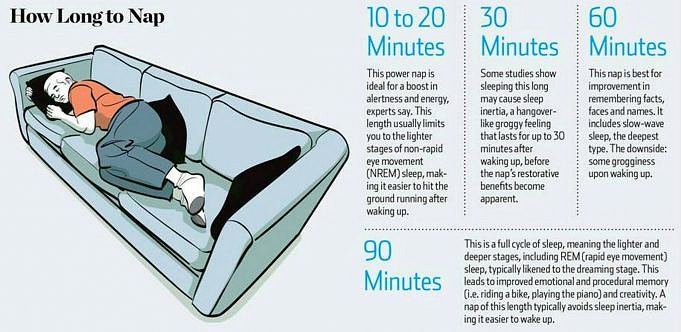American adults are often tired during the day. A short amount of sleep can help. Naps are more than just for reducing tiredness. Although napping may be viewed negatively, it is starting to look like this is completely untrue. Napping can have many benefits for your overall health, and well-being.
Here are our favorite health benefits of napping!
1. Reduce Sleep Deprivation
Many people don’t get enough sleep due to busy schedules, insomnia, or noise pollution. Sleep deprivation can lead to irritability and mental cloudiness as well as lethargy and heightened pain sensitivity. A nap can help make up the missing nighttime hours of sleep, reduce these symptoms, and increase feelings of restedness.
2. 2.
The human body naturally experiences tiredness in the mid-afternoon, and yet many of us feel too busy or somehow guilty for taking a nap. You may end up more productive if you follow your body’s natural rhythms and take a power nap in the afternoon when you are tired.
3. 3. Improve Your Mood
Low quality sleep can lead to depression. But everyone can take advantage of the mood boosting benefits of a nap. Naps can boost the production of the neurotransmitter serotonin, which is known as the happy hormone.
4. Enhance Alertness
Even something so small as 20 minutes of shut-eye can provide a powerful boost in your alertness, motor skills, and general health. You will feel energized and clearer after taking one. Taking whats known as a NASA nap of 26 minutes has been shown to enhance alertness by 54%.
5.
Zap Stress
Naps can increase the production of a hormone that blocks stress-related chemicals. It can reduce both mental and bodily tension which, in turn, lowers the risk of developing heart disease. In a recent study, napping was found to have a positive effect on levels of norepinephrine, a stress hormone which is linked with increases the bodys heart rate, blood pressure, and blood sugar.
6. Increase Work Performance
A number of hugely successful people were proud nappers Winston Churchill, Bill Clinton, Albert Einstein, and Margaret Thatcher were all huge proponents of some afternoon shut-eye. Google and other companies have also introduced nap pods to give their employees a brief break from work. The time spent catching some sleep is easily gained back in the immediate boosts in productivity which follow.
7. Reducing Anxiety
Naps are not only good for your physical health, but they also provide psychological relief from the stresses and worries of the day. Sometimes, a nap can be a way to get away from the daily grind and gain clarity. This can also help one return to a problem with renewed determination and ideas.
8. 8.
Researchers at Harvard University have found the brain uses sleep to reinvigorate neural circuits used in concentration, which not only boosts memory of newly acquired skills and competencies, but allows them to work better post-sleep. This means after a nap, what has recently been learned has been consolidated, and the brain is better able to put all of its focus onto the next tasks at hand.
9. Aid Memory
Studies show that short-term memory retention is positively affected by naps. Students were taught information, and those who napped immediately afterwards retained what theyd learned about 10% better. The retention of information was also high when the tests were done at intervals of two to five days. The information retention of non-napping students was also significantly lower over the next days.
10.
Potentially Help Migraines
A study has found promising evidence for naps being a way to battle tension headaches. Poor sleep and sleep deprivation can trigger migraines and headaches. Napping may be an effective way to combat this. And a self-reported study suggests naps are a potential coping mechanism for those who suffer frequent migraines and tension headaches.
11. Boost Your Immune System
Sleep deprivation or poor sleep hygiene may have a hugely negative impact on the immune system. Lack of sleep adversely effects and immune-regulating molecule called interleukin-6, and napping is an efficient way to boost this in the body. This could mean that those who nap are less likely to catch colds or get sick, which is beneficial both to the body, but also to mental health and work productivity.
12. Lower Blood Pressure
A study by Pennsylvania’s Allegheny College found that 45 minutes of sleep per night may be enough to lower blood pressure following stressful events. This can greatly improve your heart health. It appears that napping is associated with a decreased prescription of antihypertensive medication. It is possible that napping could help reduce the risk of heart attacks or other cardiovascular events.
13. 13. Improve Skin
During sleep, the body regenerates skin cells, which can result in brighter, healthier, younger looking skin. Reducing sleep deprivation can also reduce under eye circles, brighten eyes and give you a glow.
14. Kick Start Weight Loss
For this, the timing of the nap is what makes a difference. It can be helpful for dieters to get out of the munchie zone by getting enough sleep in the afternoon. This will allow them to feel refreshed and satisfied when they wake up. Naps could also help the body better digest sugar and carbs.
15. Low Caffeine Dependency
While caffeine may make you more alert, it can also cause a decrease in key brain functions like memory.
Consider taking a power nap instead of reaching for your cup of coffee next time you reach for it. This will give you a similar effect but without the jitters. Furthermore, a short afternoon nap is better than an espresso, as it is far less likely to disturb your ability to sleep later that night. Naps are a healthy and natural way to boost energy and beat sleepiness.



